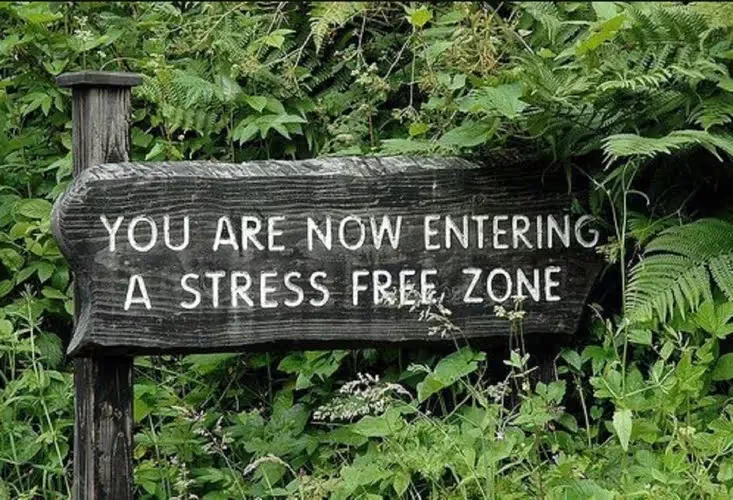How related are mental health disorders?As far as diagnoses go, there are nearly 300 different disorders that are diagnosable.Many of those are vague and...

How related are mental health disorders?
As far as diagnoses go, there are nearly 300 different disorders that are diagnosable.
Many of those are vague and indicate that there are a handful of symptoms but nothing that quite meets the criteria for a full diagnosis.
But still, that's a tone of mental disorders!
But how different are they all, really?
Well, some disorders involve seeing or hearing things that no one else sees or hears; some are stable throughout the lifetime; some are as temporary as 6 months.
Most of those are pretty uncommon- so what about the biggest categories?
Depression and Anxiety.
These two categories account for an overwhelming majority of mental health issues experienced around the world.
And, as it turns out, though they have different presentations (or symptoms) they have one major thing in common.
That commonality can also be approached and resolved in almost the same way, using the same tools!
What is it?
Stress.
In fact, stress is the primary cause of most mental health disorders and nearly all chronic diseases.
Surprised? Let's take a closer look at how this can be true.
Stress is a part of life; everyone has a million and one responsibility every single day.
On top of that we are inundated with constant streams of entertainment, advertisement, pop-ups, world news, and catastrophe after catastrophe.
What are people expected to do about it?
Simultaneously be an active agent against all world issues, and work full time to pay bills, and raise kids, and keep house, and and and…
What's the result of all of this?
Stress, and lots of it.
Stress over long periods of time (AKA chronic stress) is devastating to our minds and bodies.
Stress impacts the way we think, what we can remember, our mood, hormones, cravings, sleep patterns, and a slew of other things.
Each of those impacts our mental and physical health as a whole.
For some people that means chronic diseases like fibromyalgia, autoimmune disease, and even certain cancers.
For other people that means depression and anxiety, or any number of other mental health disorders.
The reason this happens is that stress creates inflammation, inflammation over long periods of time prohibits certain functions of the mind and body from performing their necessary tasks.
For depression and anxiety, inflammation stops critical neurotransmitters from firing like they're supposed to.
Those neurotransmitters account for a lot, like almost all of depression and anxiety.
Let's take a closer look.
So, now you know that chronic stress results in chronic inflammation which stops the mind and body from performing the things it needs to which results in a huge amount of health issues.
For depression and anxiety, the biggest factors that get impacted by inflammation are 3 key neurotransmitters; dopamine, epinephrine, and serotonin.
For a very long time, doctors believed that a lack of serotonin was the cause of depression, but neuroscience has shown how that's only part of the story.
As it turns out, the combination of those three neurotransmitters accounts for almost every single symptom related to depression.
For anxiety, inflammation has a higher impact on the amygdala which is the fear center of the brain.
The amygdala also plays a role in memory retrieval; in other words when we are worried about something the amygdala rings a terrified alarm and retrieves specific memories that support the terrified feeling.
So, depression and anxiety are both significantly impacted by chronic stress, it's just how that stress rears its effects that change depending on the individual.
For one person the inflammation targets neurotransmitters, for others, it targets the amygdala, for others, it targets auto-immune cells, and on and on.
This brings us back to the original question posed at the beginning, how different are mental health disorders, really?
Sure, the appearance is very different, but if most of them share a common cause, then does that mean that they have treatments in common also?
For anxiety and depression, the answer is yes (as well as many other chronic illnesses).

You may have guessed it by now, but the answer to treating disorders caused by stress is to decrease stress!
Easier said than done- but maybe easier done than you might think.
Here's the key to it all, the mind does not differentiate between physical stress and mental stress, so by treating one you are also treating the other.
This is really good news because that means you can use physical stress reduction techniques to reduce mental stress.
Here are a few ways to reduce stress and thereby reduce depression and anxiety:
These five lifestyle changes will transform your life and potentially rid you of depression and anxiety as well as reduce all-cause mortality from chronic diseases.
Regular exercise increases stress in the short term but massively reduces stress in the long term.
Eating an anti-inflammatory diet helps reduce inflammation in the body, lose weight, and provides tons of nutrients that your brain and body need to thrive.
Sleep is your superpower, getting regular quality sleep will drastically reduce inflammation and reset your hormones to proper balance.
Decreasing the amount of time spent on social media and integrating a basic 5-minute breathing meditation into your daily routine has also been proven to reduce stress, inflammation, high blood pressure, risk of cardiovascular disease, and more.
Time for a quick recap: there are almost 300 different diagnosable disorders for mental health; the most common by far are depression and anxiety; most mental health disorders and nearly all chronic diseases stem from inflammation caused by chronic stress.
Not too bad of a takeaway from one blog.
Not to mention you now know 5 things you can change today that will decrease depression and anxiety, and decrease the risk and severity of nearly all chronic illnesses.
Get regular exercise, eat an anti-inflammatory diet, improve your sleep habits, spend less time looking at your phone/screens, and integrate a simple 5-minute breathing meditation into your daily routine.
Yes, these are all lifestyle changes, but you don't have to make them all at once.
Any one of these will begin improving depression and anxiety as you work toward integrating all aspects.
Don't wait around, take action today and reduce depression and anxiety one step at a time.
Yes! In fact, it's encouraged that you open up to your therapist so they can gain deeper insight into your individual situation and develop the most effective treatment plan possible that works best for you. Your therapist is there to serve as an unbiased source of support who will respect any thoughts or feelings shared within the session without judgment or criticism.
Depression is a mental disorder (a common one) that affects millions of people worldwide. It is characterized by persistent feelings of sadness, hopelessness, and loss of interest in activities once enjoyed.In this section, we will discuss the various types of depression, including major depressive disorder, persistent depressive disorder, and bipolar disorder.Gaining a deeper understanding of your depression is the first step in finding the right treatment and support.
If your symptoms of depression have been persistent and interfere with your daily life, it's important to seek help from a mental health professional. It's also a good idea to get medical advice if you experience any thoughts of self-harm or suicide.
While medication is not always required for managing depression, it can be beneficial in some cases. If you decide that medication is right for you, medications such as antidepressants work by balancing certain brain chemicals involved in regulating moods. Other options include mood stabilizers or antipsychotic drugs which may also prove helpful for certain individuals struggling with symptoms of depression.
Therapy provides many benefits for people battling depression. Research has shown that cognitive-behavioral therapy (CBT) is particularly effective in managing depressive symptoms. In addition, therapy can teach healthy coping skills and provide emotional support during difficult times. It may also be used as part of a comprehensive treatment plan which includes medication as well as lifestyle changes such as regular exercise and improved nutrition.
Yes! There are many effective natural remedies that may be beneficial in managing depressive symptoms, such as participating in regular physical activity, changing your diet, getting adequate sleep, practicing relaxation techniques like yoga or meditation, journaling about your feelings/thoughts/emotions, seeking out social activities/support groups with other individuals struggling with similar issues